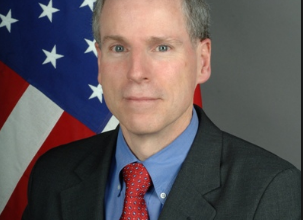
Is it called ‘terrorism’ or ‘violent extremism’?
The two recent attacks on mosques in eastern Saudi Arabia can’t be labeled as anything but evil acts of terrorism. Now, such a classification seems obvious to most of us, as there isn’t a term that is more expressive to describe these ideologically-driven, murderous attacks on a group of innocent people who were simply practicing their basic right of observing Friday prayers.
However, having just attended brain-storming sessions at the regional World Economic Forum (WEF) summit in the Dead Sea, I fear there might be some confusion as to what is defined as terrorism and what isn’t.
In particular, I met with a number of concerned U.S. and Arab officials, businessmen and intellectuals to discuss ways to prevent Muslim youth from falling into the allure of the likes of ISIS and al-Qaeda. Now, whilst the U.S. State Department representatives should be thanked for their efforts in arranging such sessions and attempting to cooperate with us to find solutions to defeat our common enemy; I did find an issue in how this common enemy was being defined.
Defining question
WEF organizers and U.S. State Department officials were repeating the term “violent extremism” to describe what we once knew as “terrorism,” Now, I can’t stop myself wondering when and how this definition came about?… and most importantly why?
The U.S. and its entire foreign policy used to be at the forefront of calling a spade a spade. Sadly, not any more
Faisal J. Abbas
Of course, the term “terrorism” itself is problematic and when it became popular post 9-11, there were many disputes over what it means and includes.
Nevertheless, the U.S. and its entire foreign policy used to be at the forefront of calling a spade a spade. Sadly, not any more.
However, although I’m not sure whether the recent shift is part of President Obama’s drive for political correctness and cultural sensitivity, I certainly hope not!
Having read so many explanations, like the Canadian government’s description of “violent extremism” which it defines as “the process of taking radical views and putting them into violent actions;” one is truly left puzzled as to what then can be described as “terrorism.”
However, the next part in the Canadian definition is even more alarming as it suggests that “Radical thinking is by no means a problem in itself” and explains that it (radical thinking) only becomes a threat to national security “when Canadian citizens, residents or groups promote or engage in violence as a means of furthering their radical political, ideological or religious views.”
There should be no tolerance for intolerance
By no means am I arguing against freedom of expression, the right to hold beliefs or the unwavering principle that people shouldn’t be innocent till proven guilty. There should be, however, no tolerance for intolerance, even if it doesn’t result in violent, deadly actions.
As such, it is ABSOLUTELY a problem to hold radical views which legitimize blowing up innocent people or decapitate others because they hold different beliefs. This issue is SERIOUS and must be dealt with by societies, parents, religious scholars, the media and governments.
Terrorism cannot be effectively fought with cartoons and slogans dreamed up by Washington or Virginia-based intelligence officials and linguistic experts
Faisal J. Abbas
Now, what is ironic is that whilst the U.S. administrations seems to be shying away from describing terrorism for what it is; this – thankfully and more importantly – didn’t seem to be the case with the Organization of Islamic Cooperation (OIC) foreign ministers’ meeting, which took place in Kuwait a few days ago, under the theme “shared vision in promoting tolerance and denouncing terrorism.”
Terrorism cannot be effectively fought with cartoons and slogans dreamed up by Washington or Virginia-based intelligence officials and linguistic experts.
Instead, the U.S. State Department’s task force on combatting extremism should work hand-in-hand with entities like the Organization of Islamic Cooperation (OIC), now headed up by former Saudi Information Minister Iyad Madani, and draw from his team’s expertise and deep cultural understanding.
Given the Saudi king’s appointment of a whole new generation of leaders – including new foreign minister Adel al-Jubeir, who knows and understands Washington very well after serving there for decades – Saudi Arabia and the OIC are well equipped to fight the scourge of extremism.
Now, more than ever, is the time to act and rid the world of terrorism and the poisonous, deadly doctrines tearing the region apart.
_____________
Faisal J. Abbas
ALARABIYA



